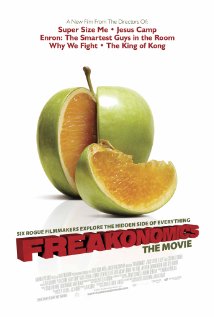-
2011.2.14
Monday 14, February 2011
in Berlin
I thought it was time to go back to my hotel as I was dozing
at my desk in the booth.
Then a female representative from the
Chinese National TV (CCTV) came up to me and said,
“We have New Year’s Day in China now,
so please say Happy New Year to all the people in China”.
So I said “Happy New Year” into the camera,
whilst holding a stuffed soft rabbit toy.
(more…)
-
2011.2.14
- Monday, 14 February 2011
in BERLIN
This is the topic covered this morning by a film industry journal.

Egyptian film “678” strongly pushed by Fortissiomo
In China, 313 new cinemas opened last year,
and the number of screens increased by 1,533.
Moreover, another 1,000 screens will open this year.
I roughly calculate that this makes about 300 new seats a day.
America has one screen per 9 thousand people,
whereas China has one per 200 hundred thousand people.
However, China still does not have enough cinemas.
I heard that although 512 films were made only 150 films opened to the public.
I guess at the moment China is going to need to build more and more cinemas.
However, the situation for foreign films in China is not a happy one.
SARFT’s strict import regulations are as tight as ever, in allowing
only 20 foreign films to be released in a year.
This wall stands in our way. Six French films managed to slid safely
into the Chinese market last year,
and the rest were mostly Hollywood productions.
 my booth neighbor Eliot is selling
my booth neighbor Eliot is selling
the first Chinese 3D animation feature.
I heard that the executives in Hollywood are
now bored with remaking Japanese films and have been
struggling hard to remake European films or make films
based on European original stories.
“This is good! OK. Let’s make the film on a large scale budget.
We have the potential to make a blockbuster film here in Hollywood”.This is their attitude. It seems that their favourite genres are
horror, thrillers and science fiction.
They are always overlooking the world.
I think it is okay, but I wonder as they are the world leaders
whether they could do with creating something new.
I wonder is it popular worldwide to make money by rehashing ideas.
Chris Nolan is really amazing. I have to appraise him anew.
By the way, I heard that Madonna was in Berlin
to show the film FOOTAGE directed by her.
At the moment it has sold to Germany, France, Italy, Spain,
Russia, South America and Scandinavia.
What about America?
Madonna said, “If it sells when I am attending,
then I must go everywhere in the world to help the sales”.
Let’s have her come to Japan to promote her film!But, wait a minute, we have a complete failure.
We can’t attract customers with the
catchphrase, “Madonna is the director”.The film is a love story about Edward III and an American divorced woman,
plus another love story about a modern married woman and a Russian security guard.
These two love stories run in parallel throughout the film.
I feel I don’t care already.
I am happy with her as an attractive singer,
even if she is getting older, because she is “Madonna”.
Anyway, a film about the collapsed mine in Chile
has already been made and is being shown on screen.
That is really quick. What a surprise.
There is also a film about current issue “GOODBYE MUBARAK, Egypt Revolusion”.
It reveals the truth about sexual harrasement in Egypt is being
advertised energettically now,
although it was a taboo subject under the Egyptian regime.
In an image from the film I can see a woman in a really crowded train
and looking really disgusted.
I can guess she has been molested.It might gain sympathy in Japan.
I have had lot of the same experiences on the Tôkaidô line in Japan.
Well, today is the fifth day and it is a fine morning in Berlin.
-
2011.2.13
Friday 11, February 2011
in BERLIN

It is the second day. The number of participants has increased
and the film festival market is getting more lively.
I am here on a mission, and that mission is
to have three important meetings.
One was on the first day, and the other two were today. Fortunately, all three meetings went smoothly, so the market was ideal for me.
I now have lots of free time.
Japanese films are hard to sell,
and in the later part of the festival lots of buyers
from small territories just collect information like
“raking up fallen leaves” in preparation for the next market.
However, I have learnt from experience,
and judge my provision well so my clients were satisfied.
I feel quite relieved now.
From today onwards I can watch various films without worrying.
My translator for this market was Rei (Rei-kun),
who lives in Berlin. He looks young, but is in fact over thirty.
His careful consideration and his smartness
have been a great asset to my market presence.
He is studying how human emotions and the body functions are
influenced by images via a post-graduate course here in Germany.
I do not know about his area of study, but I heard he is writing
a disitation on the subject “What comes first the tears or emotion
when we cry whilst watching a film?”. I can’t understand it all,
but he is a student at a philosophy department here.
I am convinced that his theme is a difficult one.
I hear, that after graduating from a Japanese university,
he started life in Germany with a two -mat room at the cost of 60 euro a month.
To help pay for this he took a part-time job at a Chinese restaurant in Berlin.
When he wanted a bath he had to steal coals from the railway sidings.
He bought these back to his room on a trolley,
and heated his shower with a small boiler using one coal chunk at a time.
But now, he is renting an apartment with two rooms and
he has a pet cat. He has his part-time job (13 hours) at
the Chinese restaurant, which pays 4 euros per hour.
“I have a cat. It is waiting for me at home.
I can have a cat now (giggles).
Pardon? Of course, my parents do not give me an allowance.
In Germany, school fees are 50 euro a month.
It’s cheap isn’t it?
I can manage to pay that myself.”
He is a person with guts and strong will.
He does not have that pathetic, foreboding future outlook that is
often found in young people in Japan today.
He is looking forward to the future cheerfully,
although he does not know what it holds for him.
He said
“The unemployment rate in the area where I am living is 50%”
“About unemployment? I am not sure what will happen.
Although I am 30 years old now,
I am a new graduate.” (laughs).
“Whether in Japan or Germany,
I’ll find a job, wherever one wants to chose me.
Do you think I can find a job?” (laughs)
He is always smiling, even when he said this.
“We will be able to get something when we have to”.
I can feel all the positive energy needed to tackle life.
I am sure he learnt about himself from his poor life in Germany.
I think we could all learn to live this life from his boldness and self belief.
I really want to tell this to people in Japan where the suicide ratio keep increasing
for over the decade now.
“In the beginning I used to work in the kitchen,
but when a waiter quit I moved up into their job.
I am quite good as a waiter, so the manager said to me that
he would employ me at any time. (laughs).
“I’ll treat you to Chinese food tomorrow”,
he said, and so he invited me to where he worked.
This increased my enjoyment even more.

An ever smiling Rei-kun is happily drinking
an Apple Cinnamon milk-shake in front of a table full of powerful women.
He ordered a kid’s drink complete with a teddy bear muddler.
“I’ll take a photo of you with that and put in on my blog”,
I teased him. He hid the muddler from view.
He talks very fast, and I can only half understand all he says.
It is the only defect in his character. That is Rei-kun.
Well, that is a report on the reality of live for Japanese students in Berlin.
-
2011.2.10
Friday 10, February 2011
in BERLIN

How long has it been since there was a Berlin International Film Festival
without snow? It is mild outside so it feels very hot inside the building.
Tonight’s opening film will be the Coen brothers latest film
“True Grit”. The tickets for huge cinema have already sold out.
I think it is perfect that the brothers are doing a stage greeting.
Lots of mega-stars are arriving for this festival,
which is one of the big three international film festivals in the world.
Everybody wants to see the stars on the Red Carpet
at least once in their lifetime.
Don’t worry.
We can see the press conference for the official screening films
and the live performances on the film festival website.
Actually although we are here in Berlin and
very near the main festival theatre you can see everything
just as well over the internet live streaming.
I wrote in a previous blog “Hollywood Pay Attention!”.
J.C. Chandor has arrived in Berlin.Tomorrow morning (local time) he has
his press conference and photo-call.Berlin International Film Festival official website
live streaming schedule:
11/2 (Berlin local time)MARGIN CALL by J.C. Chandor10.50 Photo-call11.00 Press Conference
MARGIN CALL by J.C. Chandor19.00 to 19.30 Red carpet
By the way, the film market is unusually quiet.
It seems that the Asian buyers are altogether non-existent.
In spite of it being the first day, the attendees are very, very few.
Each countries sales agents said, in chorus,
“Business is dead”, and looked very bored.
Meanwhile, I heard about a film that does
not sound commercially viable.
It is a Portuguese film, which tells the fascinating tale of
the life of Fado singer, Amália Rodrigues.
So I thought it would not be profitable as a film about fado
music seems to be only for the hard-core fans.Then” I’ll tell you a secret if it is unsold on the last day of the market”. I said it suggestively and left it there.
Fado was born in the port town of Lisbon.
The city still has the atmosphere of traditional
downtown neighbourhoods, where for example,
old women cook beside their kitchen doors.
In a way Fado has a lot in common with the
Japanese Enka song, which is a traditional style of Japanese popular song.
It’s like a folk song born of the local land,
which deeply effects the people’s emotions and is beautiful.
Although very few people go out of their way
to visit Lisbon to hear Amalia’s singing,
if we could see and hear her on screen,
I think we would find and treasure the feeling that although
“the world is wide, it is not a stranger”.
I hope we can see many more films from
around the world that make us light-hearted.
However, putting that all to one side,
I am so sleepy due to jet-lag.
-
2011.2.8
Tuesday 8, February 2011
cont’d from previous blog entry
The Magic of Winning 8 Times

Freakonomics, the movie includes the story of fixed race of Sumo tournaments.Did you know that a Professor of Freakonomics exists in Japan as well?
and is always seen sporting a checked flannel shirt.
I am sure he really is the professor of AKIBA-KEI (Akihabara style computer geeks).
He is Tatsuo Tanaka, who is a professor of Economics at Keiô University.
Recently, Professor Tanaka, I call him “Tacchan” secretly,
published a controversial report. In this he stated that
his analysis showed that although
”YouTube viewer numbers increased, so did DVD sales as well.
Don’t be afraid of illegal downloads.”
He published under the imprint of RIETI
(Research Institute of Economy, Trade and Industry agency).However, the book contains a disclaimer at the beginning,
“This is my personal opinion that I take full responsibility for it.
It does not reflect the opinion of (Incorporated Administrative Agency) RIETI.”
What kind of perilous economics are in this paper?
Professor Tanaka’s notable point is that,
the Japanese entertainment industry’s way of thinking that
any content that attracts large numbers of viewers on YouTube
cannot have any commercial value remaining.
However, the opposite is true, in that,
DVD sales increase in line with YouTube viewership.
So it is a nonsense to introduce a law that destroys illegal downloads.
You unconciously miss the nice film.
That is called opportunity loss in economics.
The professor said in his book, “YouTube doesn’t damage sales,
if anything it increases sales. It is desirable to widen distribution via YouTube.
Any right’s holder who deletes content from YouTube,
will by it’s own accord become the loser. I mean by this sentence
that I think that stopping illegal downloading is a faulty policy.”
However, it needs a real example to be able to corroborate this opinion.
Don’t be bound a policy until it comes into force. Learn positively by trial and error,
by circulating a production, and then judge the loss or gain for the copyright holder.
It is logical that the independent business is judge by an independent party,
rather than the copyright management organization.
This is the assertion of the professor.
Professor Tanaka’s profound opinions.
According to Tacchan’s analysis, “YouTube viewership increases DVD sales,
not decreases them.
1% extra YouTube viewership equates to a 0.25% increase in DVD sales.”You can read the full text of the discussion paper from this link.
A while ago, I was in the habit of watching some episodes of a variety programme
called “How Do You Like Wednesday?” on my iPad before going to sleep.
But one night they had all been deleted.
The next day I saw on a news programme that the affiliate of the copyright owner
has asked for them to be removed.
Well the affiliate is engaged in a cat-and-mouse game to get them deleted periodically.
I must admit I really enjoyed an episode showing a Journey Around Europe.
It made me burst out laughing, and allowed me to sleep well.
I was thinking about buying the DVD of “A Journey Around America”
after its European tour episode ends, but when the European tour episode was interrupted,
as a consequence I cannot be bothered to buy the America DVD now.
I simply lost my tension which I think this the consumer psychology of a great many people.
It is a strange thing to say, and I might be criticised for stating,
given that I work in the film industry sales arena,
but I honestly feel that as Japanese films cannot be sold overseas
I would rather people watched them for free rather than not all.
This really is my honest feeling.
In the case of a film that is worthy of appreciation,
we have to show it to people, it should not just be left on the shelf
because the market is not mature enough.
I think nothing shown, nothing gained.
However, I want to make it perfectly clear now that I do not mean
“dumping the films which cannot be sold”. That is not my opinion.
“It is possible to show films via internet distribution.
It is the one kind of a strategy for sale with the films that are worthy of a sale”.
This is my opinion.
It is possible to try and find “the appropriate size”
by aiming at the specific audience niche.I wrote about this in a previous blog.
However, in the case of a premature market,
for example the position with Japanese films –
raise awareness >>> gain support >>>
win popularity >>> the market fixes the price.
When facing a new market the Market Penetration Pricing Strategydescribed is needed. This is based on personal experience.
This is not an academic formula it is based on actual market criteria.
If it does not sell, keep it safe and sound in storage.
This vicious circle exists in the Japanese film industry
because it is overly conscious of protecting rights entitlements.
For example, the most widely used form of publicity in Japan
is the “free preview”, but it is only in theaters.
If you are not interested in that movie from the first place,
people don’t move to get your pen to write a postcard for lottery.
Sometimes the streaming video service, like Hikari TV
distributes a film for a limited time period, known as “Free preview at home”.
However, people have to apply and win a prize to watch the film free.
So audiences think it is a pain to spend time and effort on the entry application,
so it is not worth it. Then people lose the information
and the chance to watch the film. Finally, the film fails to garner an audience
and attract the attention of people who are not interested in it.
On the music scene, via Napster Shawn Fanning
built up a downloading culture rapidly.He changed the face of music distribution forever.
I learned about this from the film THE SOCIAL NETWORK,
which is the running for Oscars. (LOL)
The film contains a negative attitude toward downloading,
in that it says “streaming is forgivable,
but downloading is outrageous”.
I am interested in what transpires.
In the case of the current target generation,
they have already moved away from TV
and the printed word to the Internet.Time marches on, and we cannot resist any longer.
If you work in the reproduction business,
I have no doubt it is time to find a new business.
Tsutaya, a Japanese multi-media retailer,
has been moving toward an alternate delivery style for some time.
(Mr Takafumi Horie, popularly known as Horeimon said so too).
According to the analysis of Professor Tanaka, alias Tacchan,
it is still in the minority yet. It has been stated by the professor also.
Of course, we can’t agree with it unconditionally,
without taking the time to verify an example in a multilateral manner.
It is definitely “Freakonomics” now.
Time has proved the American professors arguement is sound.
I am sure that although the enthusiastic Japanese professor’s point of view
is in the minority at the moment, history will prove him right.
Professor Tatsuo Tanaka is attacked a lot for his point of view,
but he keeps proposing it in an attempt to change peoples minds
to a more positive view of his idea. I support his proposal.
Besides, the true meaning of “one man’s intuition
becomes everybody’s confidence” is shown in
Gem Partners, Ms. Umezu’s very precise “Box Office Market Analysis”.
I think the film industry should use a tool like this.
Somehow, we have an inclination to understand
something when it is proved with statistics.
However, the numbers can beguile, and so should not be taken on blind belief.
We need to look at a decision from all angles.
We must remember it is only a tool, and avoid being tricked by the magic of numbers.
I call it the magic of “US No.1 Film”.
Recently a lot of films are promoted
using the catchphrase “America’s No.1”.What is the point of calling a film “No.1”.
Anyway, apart from this question,
I really want to write about the style of advertising the hones on on this phrase.
Although this style of advertising is so old-hat and has lost it’s magic sheen.
Firstly, film marketing needs a sense of intuition, and then,
quantative analysis to back this up. This is what I think.
The important thing is not to reduce the width of
“choices” and “possibility” with one’s own accord
with a pre-conceived idea.We have to chose a tool that includes distribution to deal correctly.
Choose the best tool “strategically” for each film.
This is my reasoning.
That is why I am keeping an eye on Professor Tanaka, aka Tacchan.
I feel intuitively, “This is true”.
I want you to read the report for more details pertaining to economics and
He specialises in IT and Game industry analysis,